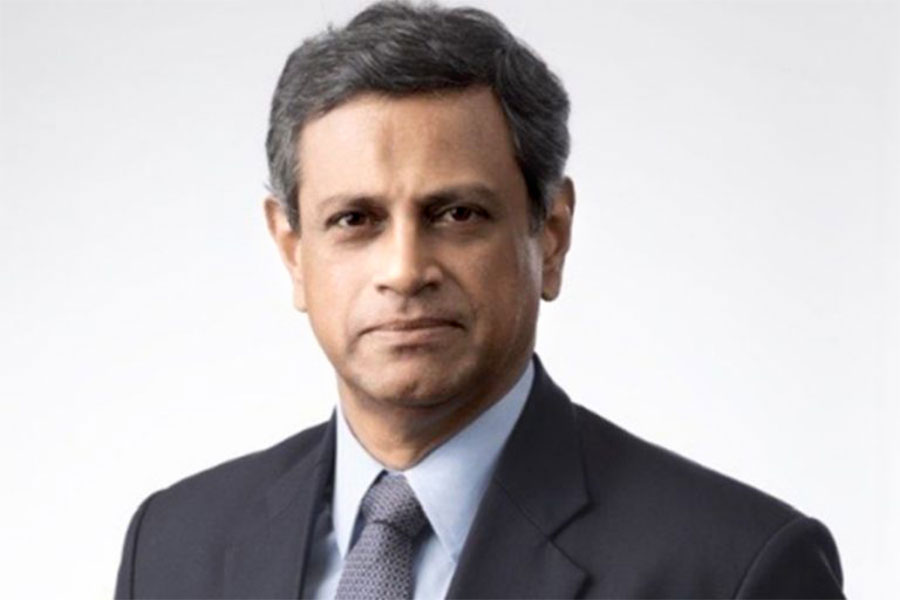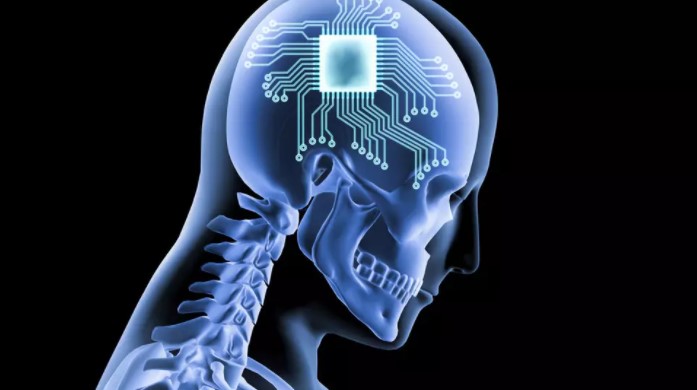Iceberg ahead! What the post-COVID era portends for jobs, education & societies
Nandu Nandkishore, Professor, Indian School of Business, cautions that new technologies, particularly automation and AI, promise a highly uncertain future for jobs. Individuals and societies that try to win in the world of tomorrow with the skills and attitudes of yesterday, are only preparing themselves for obsolescence.

We live in a world of incredible disruption. Technology-driven disruption has been a reality through the 20th century, but the pace of change is accelerating as we move further into this century. The internet, social media, mobile phones and Google are technologies we take for granted today. And yet none of these technologies existed around 20+ years ago!
Every time there is dramatic change in society, it affects all aspects of our lives. The last time this happened was during the industrial revolution, when a lot of manual workers lost their jobs and people migrated to the cities. There was great social disruption for the space of a generation, before people were (re)skilled enough to work in the new economy of that time.
Something similar is happening today. The career span of an individual is far more demanding now compared to days when I completed my MBA and stepped into the corporate world. The future of education is one of life-long learning because technologies and concepts are evolving so fast.
For instance, the concept of digital marketing did not exist 20 years ago, but today it is huge. Unlike in my generation where you did your graduation and your MBA; and with minor tweaks, it sufficed for a 30-35 year career. In today’s generation, the need of the hour is adult learning, it is life-long learning and also happening at the learner’s convenience of time and space.

Image Credit: Learning Forward
Already, the technology exists to automate factories through robots and processes through software bots. So that is definitely going to impact a lot of jobs. For example, one of the key jobs in the legal profession is that of a paralegal who has to research to find out precedents for cases. But a software bot can now do that job more efficiently, accurately and cheaply as compared to a human. So, the job of a paralegal is slowly getting displaced by software.
Likewise, almost anything that we can describe as a set of rules – whether it’s an HR, finance or administrative process – if I can describe it as a set of 25 rules, or as a heuristic, it enables you to send it down a wire to Bangalore or Manila and get the work offshored.
But offshoring is only the first step; the next logical step is to remove the need for offshoring completely and replace it with a software that does the same job. The likes of Google and Microsoft have unveiled virtual assistants, that too with incredible kinds of interaction capabilities for a variety of services, minimising the need for a human interface.
So, you could argue that like the industrial revolution, we are headed for a phase of disruption and the jobs of yesterday will disappear. Long before COVID-19 happened, it was predicted that automation would have a huge impact on the workforce of tomorrow. In November 2019, a report by Bank of America Merrill Lynch predicted that 800 million jobs globally would be lost to automation by 2035, a figure confirmed by the McKinsey Global Institute.
Already, we see that many new jobs that exist today like digital marketers, cryptocurrency and fintech industries could not even be envisioned 20 years ago.
Similarly you can argue that even with all this disruption, the jobs of tomorrow will be new jobs that we cannot yet imagine.
The second key data point is the impact of Artificial Intelligence (AI). Ray Kurzweil has made some predictions and there are various different opinions out there. But depending on who you listen to, around 20-30 years from now, you could expect to see computers that are smarter than human beings. Already, computers can, using AI, teach themselves the rules of the game of chess or ‘Go’. And within a few weeks, they are skilled enough to beat the most accomplished human grandmasters.
So, it is quite possible that the development of Artificial Intelligence will further compound the problem of new technologies and jobs. We could indeed have specialized machines to do a lot of the design and creativity jobs that were earlier the preserve of humans. It is still an open debate whether this will remain a human preserve, move entirely to AI, or continue as a blend of some kind.
These observations raise three questions that we as a species need to confront:
- What are the jobs of the future?
- What does that imply for the future of education?
- How should societies and leadership within societies prepare for these changes?
Future of jobs in an era of automation
What we can say with reasonable degree of confidence, is that the jobs of the future will be “what computers cannot do”, or “what humans and computers together can do better than computers alone”. So, at one end are the high-end design and technology jobs across all spheres of technology – biotechnology, nano technology, chemical or digital – for humans working with high tech computers to create technologies of the future.
There will also continue to be jobs for research in the pure theories of science, etc. to discover the new principles on which new technologies can be based. However, the number of such jobs will probably not grow very fast because, as I said, most simpler parts of those functions will be replaced by AI. That’s the high tech end. Where we in India like to focus with our education and focus on IQ, sciences and testing.
So, that’s the kind of glamourous bit – go to IIT/IIIT, then go to MIT and then do a start-up. But for the larger portion of the population, we will have low tech jobs that computers cannot do. If you look at some of the more obvious ones, you will always need people in the services industry, whether it’s at the home level (electricians, carpenters, plumbers, gardeners, cooks, etc), or in the institutional sector (hospitality, healthcare, caregivers, etc) or in entertainment and creative arts.

Image Credit: DNA India
The other big growth industry, which is happening under our noses, is sports, with a flurry of ‘leagues’ – Indian Premier League, Football League, Kabaddi League, Tennis League, Badminton League, etc. Huge amounts of money are going into these sports. When I was in university, I was an athlete at the time. But we were advised to strictly focus on studies, as there was ‘no future’ in sports.
Today for the first time, there IS money and livelihood in sports, if you are really good at it. Related to that, of course, is the telecasting of sports and the entertainment industry with all the soap operas and YouTube stars. Even channels like Netflix, Amazon Prime and Hotstar are now beaming into houses with high quality entertainment. The entertainment industry is booming like never before, and right into your living rooms.
The other growth industry we see today, is religion. It doesn’t matter which religious faction you are from, televangelism and giving lectures, whether on YouTube or on TV channels, has started attracted huge followings. Politics is another growth industry; particularly given the democratic system, and continues to be a growth industry.
So, to summarise, the jobs of the future will be high tech jobs on one end, and on the other hand, will be relatively low tech, but using vocational and physical skills and high emotional intelligence or EQ based jobs.
Implications for the education ecosystem
As I said, there is a pre-occupation in India with STEM courses, because of success stories from the IITs, start-ups and Silicon Valley techies. Of course, that will continue to be important. Our historical educational focus on IQ, memory and competitive exams serves very well this first category of high-tech jobs.
However, given the larger mass of employment in other job roles like sports, politics, entertainment, services industry or vocational training, which require high Emotional Quotient, high physical abilities and communication, we probably need to pay attention to a different set of skills as well.
Service jobs require high amount of Emotional Quotient (EQ). We train for IQ, but we completely miss EQ. In fact one could argue that our focus on individual competitive selection actually undermines the motivation for teamwork.
We need to help people rediscover the pride which comes from working with your hands and from a service that is well delivered. These skills used to be important in our society 50 years ago, and we have to rediscover them. As long as we keep training our children in yesterday’s skills, they will lose out on the new reality that demands these new skills.
We also have to teach our people how to work in cross functional and multinational, even virtual teams across countries. Every time you have to work in a global/multinational team, you need to be culturally adaptable and quickly figure out that you don’t have to win every argument.
I have worked with managers all over the world, and I tell you, individually, Indian managers are second to none. They also have a a good sense of cultural adaptability because our society in India in itself is so heterogenous – multi-religious, multi-cuisine, multi-ethnic, multi-lingual, etc.
However, the drawback is that we tend to be people who have to win every single argument, and always ‘know’ the best in the team. In a team, you need a mix of competencies, you need to be the best at what you do, but also acknowledge that someone else is the best at what he/she does. And how do you blend that together to get a result that is greater than the sum of the individuals? So, that is the kind of thinking we need to start developing in our children.
This is exemplified well in the hockey movie “Chak De” starring Shah Rukh Khan, where there are two star forwards who don’t pass the ball to each other, as they are competing to be the top scorer in the tournament. That kind of underlines a lot of our team work dilemmas in India. So, training our people in team working skills is a very important part of creating the skills necessary for tomorrow’s society.
Can societies avoid the body blow?
There are some societies and leaderships who have already taken steps to adjust educational models, whether it’s Finland or even Singapore. For example, Singapore already has new policies where they are focusing on learning and doing with the hands, and eliminating competitive testing upto the age of 8 or 10. And encouraging curiosity and creativity. There will still be testing, but more to assess individual strengths and weaknesses for coaching.
To some extent, India’s new education policy does take steps in this direction – introducing and allowing digital technologies, allowing foreign universities to come in etc. Could it move faster? Yes, probably. But it’s a huge nation and we have to go step by step, so I understand why it is structured in this way.
The other big implication for societies is the strengthening of the digital divide. Historically, societies have always liked to emphasise their individual superiority based on nationality, community, caste, religion, etc. However these are largely based on assumptions and not on absolute genetic reality.

Image credit: News Break
For the first time however, technology and money are actually creating a divide. An example is the kind of lens implant you get in your eyes, once you get a cataract surgery : is it multifocal, trifocal or single focal? And what impact does it have on the quality of life after surgery? Similarly with hip and knee replacements and impact on quality and productivity of life.
From here, it’s only a small step forward and Elon Musk is already talking about finding some way to implant a chip and interface with the brain to create direct access to Artificial Intelligence. So, with technology moving in that direction, you are very really looking at the possibility of a society where people with access to money and technology can literally become, in some ways, superior humans!
Technology will also enable skilled jobs to move between countries seamlessly, thereby pricking the ‘visa restrictions’ balloon. Peter Drucker shortly before he died, described the new world as one, “where the dream of Karl Marx would be enabled by the power of Bill Gates” and good talent truly goes global.
The digital divide is equally very important between societies – it’s real and accelerating. Here’s where leadership comes in – how do you prepare your society and your children to be amongst the winners in this new technology and the new employment paradigms that are about to unfold?
There are smaller societies like Singapore, who are very focused at doing what it takes to win in this new economy and brave new reality. And even they run the risk of becoming complacent or restrictive… Any leadership that ignores this tsunami of change (fundamentally driven by technology) can rightly be accused of being a little myopic. You can choose to ignore the tsunami and rearrange the deck chairs on the Titanic by focusing on local issues or divisive politics based on presumed racial or religious exclusivity, but this iceberg will hit you anyway.
This is among those fundamental issues that societies as a whole need to grapple with, looking forward. Especially because we don’t have a road map or a good idea of what is about to unfold… we can only prepare by building capabilities. A lot of our societies however, across countries without being specific, tend to look backwards and are preparing for a tomorrow that looks much like yesterday. In a very shocking way, that might turn out to be a self-fulfilling prophecy for those societies.
[Note from Author: I’m not an expert in education. I do however look at changing trends in business, employment and society. The enclosed are my views about the implications of these changes. They are not meant to be complete. Nor are they prescriptive. Far brighter minds who are skilled in this field, will be able to make better recommendations. However these are my views, such as they are And meant to start a discussion on this topic.]
Nandu Nandkishore, Professor, Indian School of Business, has almost 40 years with commercial organizations including 26 years with Nestlé and leading businesses all over the world as a CEO. Nurturing innovation as an Intrapreneur as well as a Venture Capitalist, he has helped people and businesses grow and realise their potential.
A noted keynote speaker, and an author of several articles in HBR, he is now a Professor at the Indian School of Business. His client list as a consultant includes Essilor, The Coca-Cola Company, JW Marriot, Banco Commercial Romania, Standard Chartered Bank, and several other global companies. He continue to mentor startups like Livinguard AG, Vyn, the Mom’s Co Ltd, Global Gene Corp Ltd, MPharma and others. All views expressed are the author’s personal opinion and not the organizations he represents.













Leave a comment